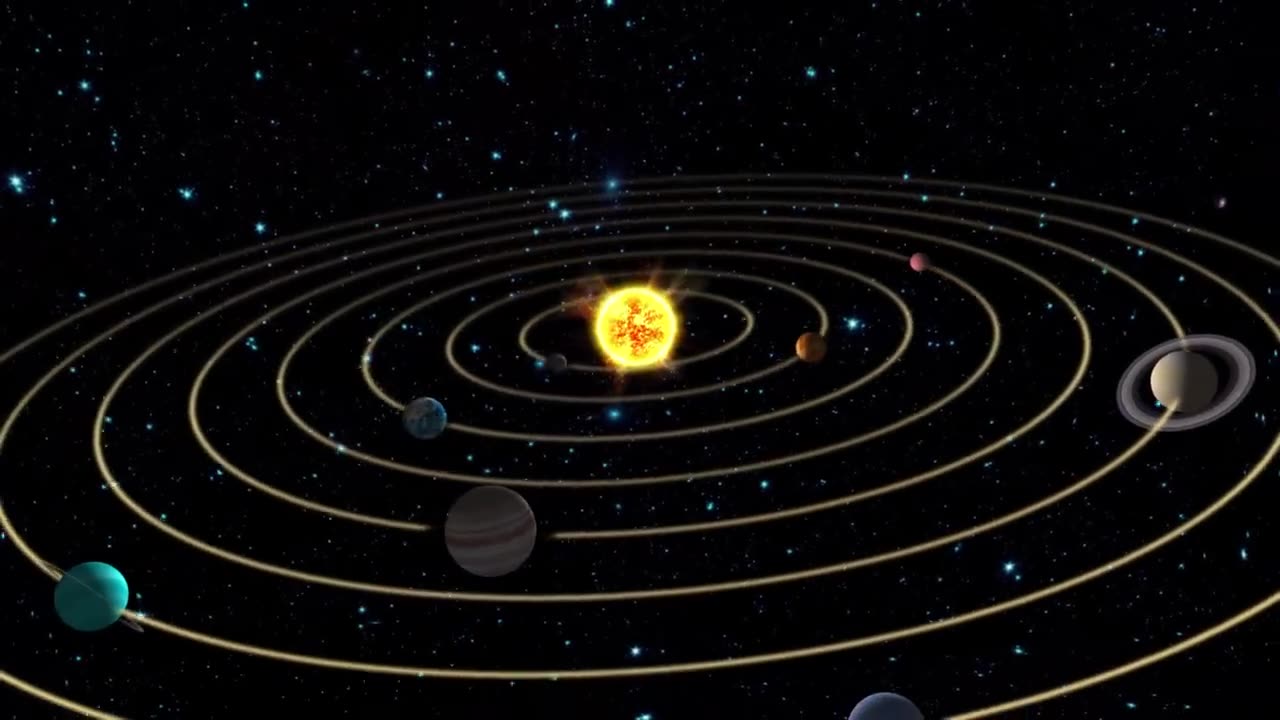Premium Only Content

How Do Planets Get Their Names? We Asked a NASA Expert
How do planets get their names? With the exception of Earth, the planets in our solar system were named after Greek or Roman gods. Today, the job of naming things in space falls to the International Astronomical Union (IAU), the internationally recognized authority for naming celestial bodies and their surface features. NASA scientist Dr. Henry Throop explains more.
Have you ever wondered how the planets in our solar system got their names? Most of the planets in our solar system are named after Greek and Roman gods and goddesses. This tradition goes back to ancient times, when astronomers believed that the planets were controlled by these deities.
For example, the planet Jupiter is named after the Roman god of the sky and thunder. Jupiter is the largest planet in our solar system, so it is fitting that it is named after the king of the Roman gods.
Another example is the planet Venus, which is named after the Roman goddess of love and beauty. Venus is the brightest planet in the night sky, and it is often associated with beauty and romance.
The planet Mars is named after the Roman god of war. Mars is a red planet, and it was once thought to be the planet of war and bloodshed.
The planet Mercury is named after the Roman god of messengers. Mercury is the fastest planet in our solar system, and it was once thought to be the messenger of the gods.
The planet Saturn is named after the Roman god of agriculture. Saturn is known for its rings, which are made up of billions of pieces of ice and rock.
The planet Uranus was discovered in the 18th century, and it was named after the Greek god of the sky. Uranus is a blue planet, and it is the seventh planet from the Sun.
The planet Neptune was also discovered in the 18th century, and it was named after the Greek god of the sea. Neptune is a blue planet, and it is the eighth planet from the Sun.
The planet Pluto was discovered in the 20th century, and it was named after the Greek god of the underworld. Pluto is a dwarf planet, and it is located in the Kuiper Belt, which is a region of icy bodies beyond Neptune.
In addition to the planets, many of the moons in our solar system are also named after Greek and Roman gods and goddesses. For example, the moon Io is named after the Greek goddess of love and marriage, and the moon Titan is named after the Titan of fertility and the harvest.
The tradition of naming planets and moons after Greek and Roman gods and goddesses is a way to connect our solar system to the mythology and culture of ancient Greece and Rome. It is also a way to remember the astronomers who discovered these celestial objects and who helped us to understand our place in the universe.
We hope you enjoyed this video!
-
 14:22:40
14:22:40
The Quartering
1 day agoYule Log Christmas MAGA Edition With Memes! Come Hang Out!
192K27 -
 38:41
38:41
MYLUNCHBREAK CHANNEL PAGE
1 day agoTimeline Begins in 1800? - Pt 1 & 2
81K46 -
 1:23:41
1:23:41
Game On!
1 day ago $11.87 earnedNetflix NFL Christmas Games Preview and Predictions!
74.6K9 -
 2:05:07
2:05:07
Darkhorse Podcast
1 day agoWhy Trump Wants Greenland: The 257th Evolutionary Lens with Bret Weinstein and Heather Heying
303K590 -
 8:50:58
8:50:58
Right Side Broadcasting Network
1 day ago🎅 LIVE: Tracking Santa on Christmas Eve 2024 NORAD Santa Tracker 🎅
393K58 -
 2:48
2:48
Steven Crowder
1 day agoCROWDER CLASSICS: What’s This? | Nightmare Before Kwanzaa (Nightmare Before Christmas Parody)
349K13 -
 33:49
33:49
Quite Frankly
1 day agoThe Christmas Eve Midnight Telethon
139K23 -
 2:12:46
2:12:46
Price of Reason
1 day agoAmber Heard BACKS Blake Lively Lawsuit Against Justin Baldoni! Is Disney CEO Bob Iger in TROUBLE?
85.9K24 -
 1:01:17
1:01:17
The StoneZONE with Roger Stone
1 day agoChristmas Edition: Why the Panama Canal is Part of the America First Agenda | The StoneZONE
154K53 -
 18:12:15
18:12:15
LFA TV
1 day agoLFA TV CHRISTMAS EVE REPLAY
162K19